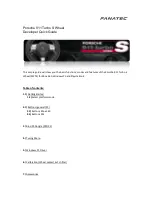
175
Starting and driving
Parking on a hill
When parking on a steep hill, turn the front
wheels so that they will be blocked by the
curb if the car should move.
Long-term parking
If the car is not going to be used for some
time, e.g. 3–4 months, the following steps
are recommended:
• Run the engine to normal temperature
before long-term parking.
• Drain the washer-fluid reservoir and
hoses.
• Wash and wax the car. Clean the rubber
seals on the hood, trunk lid and doors,
and lubricate them with glycerol (glyc-
erin).
• After washing the car, dry the brake discs
by taking the car out on the road and
applying the brakes a few times. If the traf-
fic conditions allow, brake quite heavily
just before parking.
• Fill the fuel tank with fuel to prevent con-
densation forming in it.
• Top up the coolant and check the anti-
freeze before the onset of winter.
• Park the car in a dry, covered and
well-ventilated building. Leave the park-
ing brake OFF!
• Disconnect the negative (-) battery lead.
If freezing temperatures are likely to occur
during the long-term parking, remove the
battery and store it away from freezing
temperatures.
• Ideally, the car should be put up on
blocks, with the wheels off the ground. If
this is not possible, inflate the tires to
about 43 psi (300 kPa).
• Leave all the windows open a crack and
cover the car with a fabric tarpaulin - not
one made of plastic which will not breath.
IB879
1 Pointing downhill and
against the curb
– Turn the wheels into the
curb and edge the car for-
ward until the wheels touch
the curb.
2 Pointing uphill and
against the curb
– Turn the wheels away
from the curb and edge the
car back until the wheels
touch the curb.
3 Pointing uphill or down-
hill – no curb
– Turn the wheels towards
the edge of the road. If the
car should start rolling, it
will not run into the road.
















































